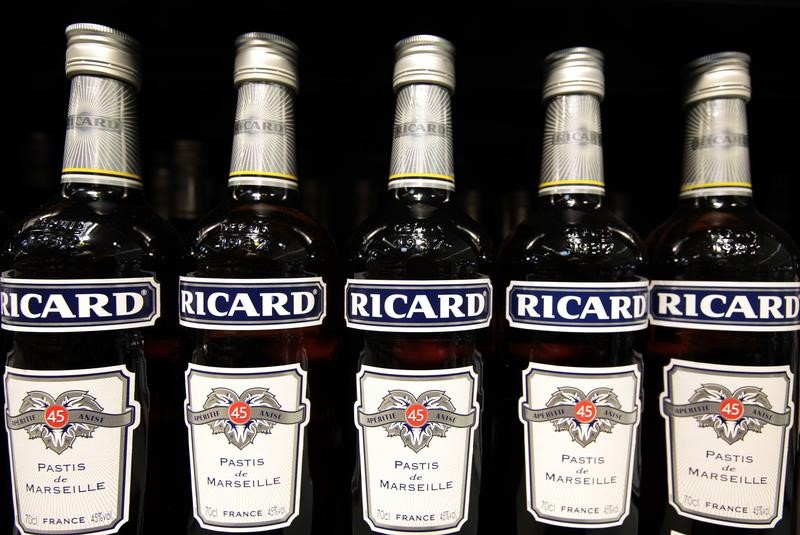Adaptimmune stock plunges after announcing Nasdaq delisting plans
Investing.com -- Pernod Ricard on Thursday reported a 7.6% decline in first-quarter organic sales, weaker than expected in key markets including the United States and China, as the company maintained its full-year guidance.
Absolute sales for the quarter were €2.38 billion, broadly in line with consensus of €2.38 billion but below Jefferies’ €2.47 billion projection.
The decline reflected inventory destocking in the United States, soft demand in China, and policy-related headwinds in India.
Performance varied across regions. Asia and the rest of the world fell by 7% compared with a consensus expectation of a 9.3% decline and Jefferies’ forecast of 11%.
The Americas declined by 12% versus a consensus expectation of 9% and Jefferies’ estimate of 9.5%. Europe was down by 4% compared with a consensus expectation of 2.3% and Jefferies’ forecast of 3.7%.
Pernod Ricard maintained its fiscal 2026 guidance, calling for improving trends and a focus on defending operating margins.
Growth is expected to be skewed toward the second half of the year. Global Travel Retail is expected to return to growth from the second quarter onwards, supported by resumed Cognac (Martell) shipments to China.
The company is targeting €1 billion in efficiencies through fiscal 2029, keeping investments below €900 million in fiscal 2026.
Cash conversion is expected to exceed eighty percent, while tariffs could impact results by up to €80 million, and currency fluctuations remain a significant drag.
The company reiterated its medium-term outlook, forecasting average organic net sales growth of three to six percent between fiscal 2027 and fiscal 2029, alongside annual operating margin expansion.
Strategic investments are expected to normalize at approximately €1 billion from fiscal 2026.
Advertising and promotion spending is projected to remain around sixteen percent of net sales, with flexibility to allocate by brand and market.
Performance highlights included stronger sell-out trends in the United States relative to the market and growth in Canada, Turkey, Japan, and South Africa. India, outside the Maharashtra state, also showed robust results.
The ready-to-drink portfolio grew 10%, with marketing investment maintained at high levels, while management emphasized operational efficiencies, cost control, and cash generation.
Key challenges included declines in major markets. The United States fell by 16% and China by 27% due to macroeconomic weakness, soft demand, and inventory adjustments.
Maharashtra state in India saw a sharp sales hit from a 50% excise tax increase.
Global Travel Retail declined by 15%, reflecting weakness in Asia and delayed Cognac sales to China duty-free, with improvement expected from the second quarter.
Shares had been weak ahead of the results. Jefferies noted that the report is broadly in line with expectations but expects a modest reduction in consensus estimates due to weaker topline and bottom-line results, as well as higher financing costs and foreign exchange impacts.
